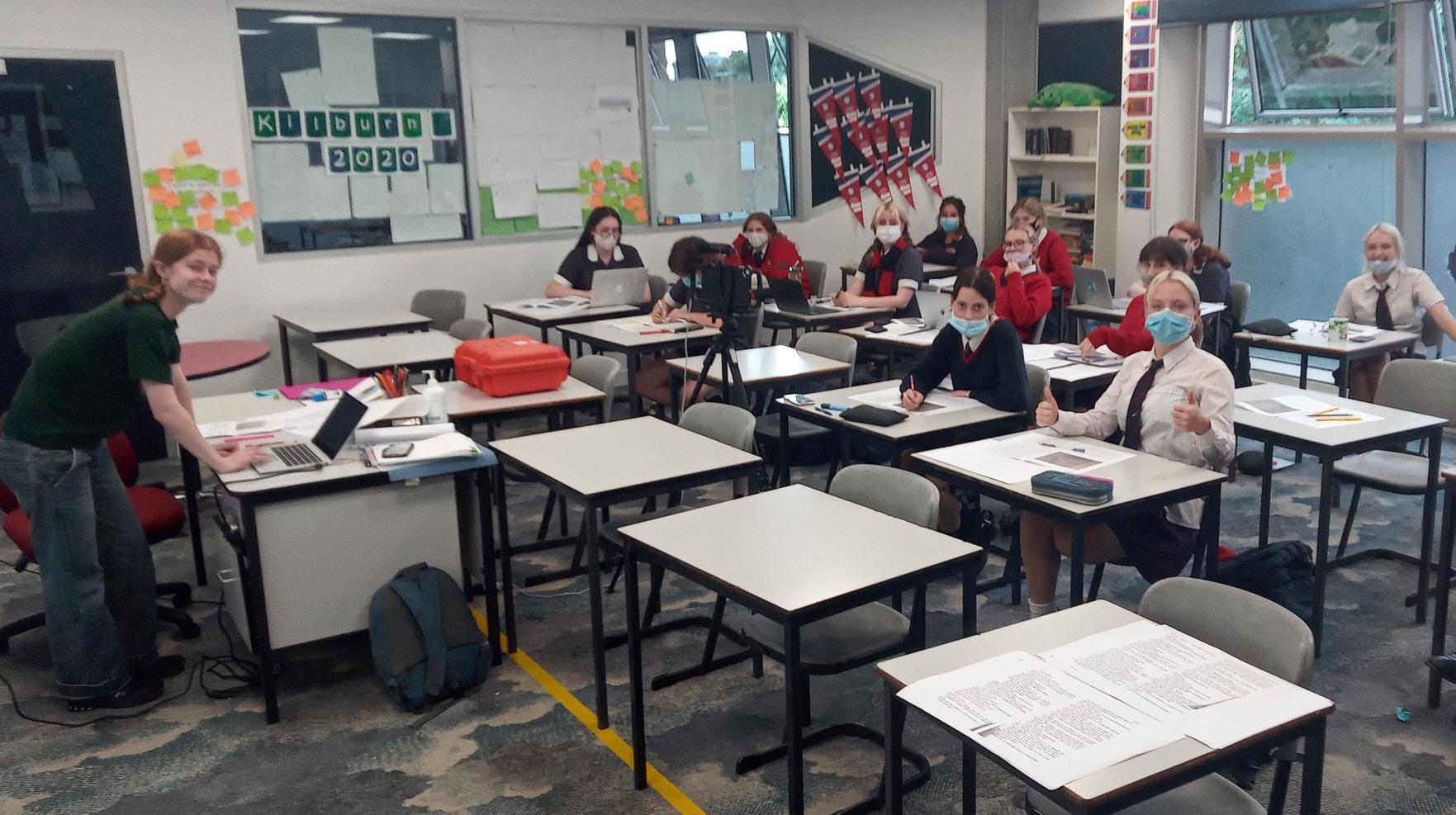
4 minute read
The power of why?
‘The great problem today is...how to move towards a form of renewal that attempts to interweave the single disciplines and make them interact in a way that has never been done before in learning. We are proposing something in very uncertain times, which does not envisage abandoning specific disciplines, but at the same time does not want to exalt them; something that would like to have the disciplines penetrating each other and reciprocally enriching each other’ (Loris Malaguzzi in Cagliari., et al, 2016, p 264). At St Michael's, in the Junior School, including Margaret Thomas House, we are influenced by the tenets of the Reggio Emilia Educational Project, originating in Italy. The quote above, from the founder of the Reggio Emilia Project, is fitting for today’s context, despite being decades old. Malaguzzi’s aim was to challenge the status quo of the grammar of schooling when he first commenced his research and life’s work, spanning around 50 years. His research, philosophy and pedagogical approaches live more strongly today than ever before. Why? His work was evidence based and focused on growing an educational system founded on the premise that children are citizens with rights. At the start of this year, we were determined to commence school with a focus on ‘Our way of being’. We knew that the impact of 2020 would not end, just because the year was over. We concentrated our efforts on ensuring that the children’s academic and emotional needs enriched each other. The children were actively engaged in establishing how we would work best, treat one another with our values of Dignity, Respect, Care and Compassion, and how our learning environments, both internally and externally, should feel to maximise our learning and our wellbeing. If you relate it to an adult’s working life, you could say it is like establishing norms that guide our behaviour and attitudes to ensure we operate optimally. We maintained our high standards in terms of our wellbeing program, and ensured our work in Health, Anam Cara and Positive Learning was prioritised. The teachers themselves, in the Kindergarten and in the Prep to Year 6 area, have all undertaken very targeted research in the core areas of learning. They are working in Professional Learning Teams (PLTs) dedicated to Literacy, Numeracy, Wellbeing, and the area of Transdisciplinary Inquiry. Malaguzzi speaks often about ‘interweaving disciplines.’ We see great value and importance in staff working in cross-disciplinary teams, so that we may explore this interweaving of approaches.
Within PLTs, staff are undertaking audits on our current practices and approaches, having come off a significant time of disruption and uncertainty, which has continued to agitate the ‘why’ of what we do. We are not abandoning those things we know work well for our students, but we wish to take the time to question why we do what we do, analyse the evidence of our impact and plan for a strategy for improvement where it is required. One of the outcomes of this is that we are reviewing our current approaches to both assessment and reporting. Year 4 teachers are trialling online reporting, with continuous feedback integrated into the way in which we report to our students. Students receive ongoing feedback, made visible to parents. This trial will continue over the year and will inform our future decision making on how we deliver feedback and structure reporting in the Junior School. Working with an external agency, a team of staff within the Junior School has been refining and redefining our approaches to inquiry learning. They have looked outwards and are researching the latest developments around the world. This work requires significant analytical and creative thinking by our teachers and the research and iterations will continue for some time. I have witnessed transformational thinking when teams with different strengths come together to innovate, so it is an exciting time. As a part of our review, we are also looking at ways of connecting to the community. We have been successful with our grant application to the St Kilda Botanical Garden’s Eco Centre to engage our children in the Tomorrow's Leaders for Sustainability Program. Our Year 4 children visit the Eco Centre once a week for half a day, where they have adopted a tree each, which they will care for and observe over the term. The focus of their research will be on how local habitats are impacted, and how as citizens, they can support and assist in habitat rehabilitation. Natural sites provide rich learning experiences, and we are integrating literacy, numeracy, and child centred research in outdoor spaces that invite openended interactions, risk-taking, exploration, discovery and connection with nature. While I have highlighted only a few examples of the important work occurring in our School, there is much to celebrate in all areas of the Junior School, including Margaret Thomas House. By asking ‘why?’, we continue to renew and evolve our programs. Importantly, from a crisis we should seek to find silver linings, to discover where the buds of renewal may sprout and how we may interweave the various facets of schooling and learning so that the experiences are rewarding ones for our children.
Mrs Nicole Armatas
Associate Head (K-6)











